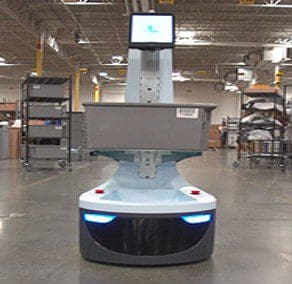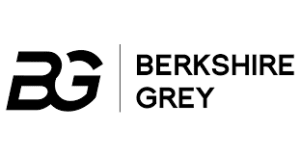
This week’s logistics news includes two articles about privately-held warehouse robotics companies and their respective equity financing announcements. Both articles mention the implied valuation of these companies. Corporations with publicly traded stock can be valued by simply multiplying the number of equity shares outstanding by the price per share, resulting in the company’s market capitalization. But how are privately-held companies valued if their share prices are not known? Well, the short answer is the value is “what buyers and sellers agree upon.” Traditional valuation methods, such as discounted cash flow (DCF) analysis, are difficult to apply to early-stage ventures because predicting future cash flows is a process of assumptions built on assumptions. But DCF can be conceptually applied during the due diligence process, which can then be used in the negotiation to arrive at “what buyers and sellers agree upon.” A process known as the venture capital method involves four main variables – The forthcoming investment amount (let’s say $100 million), the percentage of company ownership that financing will grant the investor (let’s say 20 percent), the agreed upon value of the company after the forthcoming investment (which may involve some DCF analysis and a boat load of assumptions), and the implied value of the company prior to the investment. In the above example, if a round of investors agrees to invest $100 million to obtain 20 percent of the company, the investors and the company selling its shares are agreeing that the company’s value after the $100 million investment is $500 million (100 is 20% of X). Therefore, the company’s valuation prior to investment is $400 million ($500 million – $100 million). There you have it. Now you know. And now on to this week’s logistics news…
- Executive Order to Secure America’s Supply Chains
- Gap, Inc. to Build New DC in Texas to Support Digital Shopping
- U.S. ban on China’s Xinjiang cotton fractures fashion industry supply chains
- Warehouse Robotics in the News
-
-
- Locus Robotics raises $150 million
- Berkshire Grey to Go Public (well, sort of..)
-
-
- JD.com offers peek into China’s e-commerce machine (logistics business to go public)
![]() President Biden signed an executive order on Wednesday to help secure supply chains for US goods considered critical and essential. The order launches a comprehensive review of U.S. supply chains and directs federal Departments and Agencies to identify ways to secure U.S. supply chains against a wide range of risks and vulnerabilities. An immediate review will take place across agencies to address vulnerabilities in the supply chains of four key products – active pharmaceutical ingredients (APIs), critical minerals (rare earths, etc.), semiconductors and advanced packaging, and large capacity batteries. Additionally, the order calls for a more in-depth one-year review of a broader set of U.S. supply chains with a focus on six key sectors – the defense industrial base; the public health and biological preparedness industrial base; the information and communications technology (ICT) industrial base; the energy sector industrial base; the transportation industrial base; and supply chains for agricultural commodities and food production.
President Biden signed an executive order on Wednesday to help secure supply chains for US goods considered critical and essential. The order launches a comprehensive review of U.S. supply chains and directs federal Departments and Agencies to identify ways to secure U.S. supply chains against a wide range of risks and vulnerabilities. An immediate review will take place across agencies to address vulnerabilities in the supply chains of four key products – active pharmaceutical ingredients (APIs), critical minerals (rare earths, etc.), semiconductors and advanced packaging, and large capacity batteries. Additionally, the order calls for a more in-depth one-year review of a broader set of U.S. supply chains with a focus on six key sectors – the defense industrial base; the public health and biological preparedness industrial base; the information and communications technology (ICT) industrial base; the energy sector industrial base; the transportation industrial base; and supply chains for agricultural commodities and food production.
 Gap, Inc. announced plans to open a new state-of-the-art Customer Experience Center in Longview, Texas. The $140M investment will help Gap Inc. meet the rising customer demand for online shopping. The new facility will feature industry-leading technology that has been tested and optimized in other campuses across the Gap Inc. network. Upon completion, the new facility will be able to process up to one million units per day. Itl is expected to total approximately 850,000 square feet. Construction will begin in April 2021 with plans to be fully operational by August 2022. Although the article does not mention specific technologies, Logistics Viewpoints has noted Gap, Inc.’s rapid adoption of Kindred Sort robotics within its fulfillment centers.
Gap, Inc. announced plans to open a new state-of-the-art Customer Experience Center in Longview, Texas. The $140M investment will help Gap Inc. meet the rising customer demand for online shopping. The new facility will feature industry-leading technology that has been tested and optimized in other campuses across the Gap Inc. network. Upon completion, the new facility will be able to process up to one million units per day. Itl is expected to total approximately 850,000 square feet. Construction will begin in April 2021 with plans to be fully operational by August 2022. Although the article does not mention specific technologies, Logistics Viewpoints has noted Gap, Inc.’s rapid adoption of Kindred Sort robotics within its fulfillment centers.
 The US ban on Xinjiang cotton is reported to be rapidly splintering a multibillion-dollar supply chain of textiles, clothing, and other goods that rely upon cotton as a material. Chinese cotton yarn maker Huafu Fashion stated that multiple American brands have canceled orders. Additionally, The Washington Post article names Ikea, Gap, Inc., H&M, and Nike as examples of companies that have communicated their company’s disassociation from the Xinjiang region’s cotton. However, tracing the source of cotton can be difficult, and Chinese manufacturers can allocate cotton to orders to avoid the impact of the ban. According to the Washington Post, Justin Huang, president of the Taiwan Textile Federation, stated that China is probably is using its imported cotton for U.S. orders and shuffling Xinjiang cotton to other markets.
The US ban on Xinjiang cotton is reported to be rapidly splintering a multibillion-dollar supply chain of textiles, clothing, and other goods that rely upon cotton as a material. Chinese cotton yarn maker Huafu Fashion stated that multiple American brands have canceled orders. Additionally, The Washington Post article names Ikea, Gap, Inc., H&M, and Nike as examples of companies that have communicated their company’s disassociation from the Xinjiang region’s cotton. However, tracing the source of cotton can be difficult, and Chinese manufacturers can allocate cotton to orders to avoid the impact of the ban. According to the Washington Post, Justin Huang, president of the Taiwan Textile Federation, stated that China is probably is using its imported cotton for U.S. orders and shuffling Xinjiang cotton to other markets.
 Locus Robotics announced $150 million in Series E funding, bringing Its valuation To $1 Billion. Locus will use the new investment to further expand its market opportunities around the globe and support ongoing research and development (R&D) to grow and enhance its award-winning, innovative warehouse technology solution. Locus customers worldwide include CEVA Logistics, DHL, Material Bank, Boots UK, GEODIS, Port Logistics Group, Verst Logistics, Radial, and others. The funding round was led by Tiger Global Management and BOND. The round builds on support from existing investors including Scale Venture Partners and Prologis Ventures, the venture capital arm of Prologis.
Locus Robotics announced $150 million in Series E funding, bringing Its valuation To $1 Billion. Locus will use the new investment to further expand its market opportunities around the globe and support ongoing research and development (R&D) to grow and enhance its award-winning, innovative warehouse technology solution. Locus customers worldwide include CEVA Logistics, DHL, Material Bank, Boots UK, GEODIS, Port Logistics Group, Verst Logistics, Radial, and others. The funding round was led by Tiger Global Management and BOND. The round builds on support from existing investors including Scale Venture Partners and Prologis Ventures, the venture capital arm of Prologis.
 Berkshire Grey, a provider of AI-Enabled Robotics and Automation Solutions, announced a business combination with Revolution Acceleration Acquisition Corp (RAAC). RAAC is a SPAC (see SPAC Frenzy), or special purpose acquisition company, that has gone public without an operating model with the express intent of acquiring another company. The transaction is expected to provide up to $413 million in cash proceeds. Berkshire Grey expects to have $507 million cash, which will be used to fund operations and support new and existing growth initiatives, and no debt on its balance sheet following the combination. Berkshire Grey offers integrated artificial intelligence-based software and hardware solutions to automate business operations in warehouses and logistics fulfillment centers.
Berkshire Grey, a provider of AI-Enabled Robotics and Automation Solutions, announced a business combination with Revolution Acceleration Acquisition Corp (RAAC). RAAC is a SPAC (see SPAC Frenzy), or special purpose acquisition company, that has gone public without an operating model with the express intent of acquiring another company. The transaction is expected to provide up to $413 million in cash proceeds. Berkshire Grey expects to have $507 million cash, which will be used to fund operations and support new and existing growth initiatives, and no debt on its balance sheet following the combination. Berkshire Grey offers integrated artificial intelligence-based software and hardware solutions to automate business operations in warehouses and logistics fulfillment centers.
 JD.com, the China-based $160 billion web retailer, is spinning off its logistics operations in a Hong Kong listing. Last year, 90% of the orders JD Logistics processed for its parent were delivered within a day, thanks to a vast network of 800 warehouses across the country and 190,000 delivery employees. The subsidiary is betting it can replicate the success for other online merchants. Revenue at JD Logistics surged 43% year on year, to 49.5 billion yuan ($7.7 billion) in the nine months to September. JD Logistics even boasts a fully-automated warehouse that can process more than 1.3 million orders a day.
JD.com, the China-based $160 billion web retailer, is spinning off its logistics operations in a Hong Kong listing. Last year, 90% of the orders JD Logistics processed for its parent were delivered within a day, thanks to a vast network of 800 warehouses across the country and 190,000 delivery employees. The subsidiary is betting it can replicate the success for other online merchants. Revenue at JD Logistics surged 43% year on year, to 49.5 billion yuan ($7.7 billion) in the nine months to September. JD Logistics even boasts a fully-automated warehouse that can process more than 1.3 million orders a day.
That’s all folks! Have a good weekend.
















